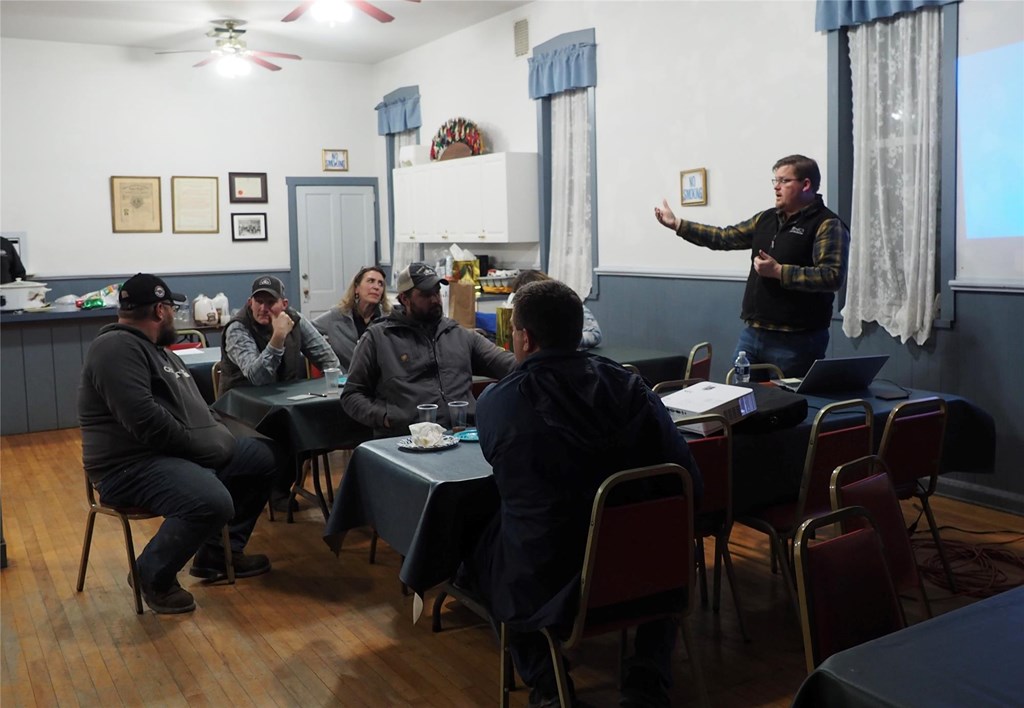Community Outreach for Vultures
Posted on in In the Field by Rebekah Smith

Hawk Mountain Sanctuary is paving the way for human-vulture coexistence in the face of black vulture range expansion and unprecedented vulture population growth. Hawk Mountain Sanctuary Biologist-Naturalist Bracken Brown presented an inaugural outreach talk hosted by the Pennsylvania Cattlemen’s Association in January 2023. The first of its kind, the talk served to create a direct link between the raptor researchers at Hawk Mountain Sanctuary and local farmers of the surrounding rural communities.
While this event was the first opportunity to establish contact with local farmers, Hawk Mountain has long shared the story of the benefits of vultures to the environment, echoing researchers in Africa, Asia, and Europe who have witnessed the rapid decline of vultures and the ecological, economical, and public health fallout. Hawk Mountain’s community outreach campaign gained traction over the last few years as vulture populations continued to rise in Pennsylvania. In collaboration with a former Conservation Science Trainee, Zoey Greenburg, Bracken worked to create educational materials about vultures to share with the community. Tagging vulture nestlings in local barns have continued to be a staple in Hawk Mountain’s vulture research strategy, so collaborating with the community will continue to be an integral part of our efforts.

While researchers at Hawk Mountain are collecting the data to show black vulture range expansion and turkey and black vulture population increases, local farmers are on the ground seeing these changes occur in real-time. They’re also directly impacted by the influx of vultures, as vultures establish roosts on barn roofs, in pastures, and even on the backs of their cattle. Researchers and farmers alike have witnessed black vultures perched on the backs of cattle, preening fur in search of ticks. This inter-specific interaction, while intriguing, can be daunting. Imagine a large black figure, representative of death and decay, looms over your prized source of income like a bad omen. Even though this is an alarming sight, there haven’t been any recorded instances of black vultures harming livestock, and these observations aren’t indicative of an unhealthy stock.
“As we begin this outreach process, it’s going to be about addressing each problem individualistically until we can pinpoint the issues and determine the best solutions,” Bracken shared at the event. Bracken encouraged anyone in the local community facing conflict with vultures to take pictures and videos of the interactions and contact him via email at [email protected].